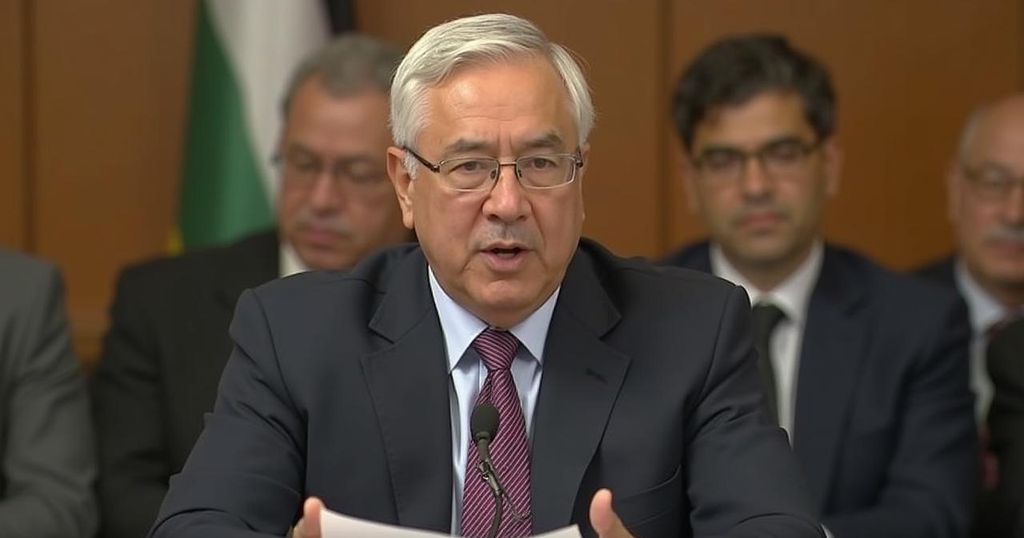The article discusses Indonesia’s condemnation of Israel’s approval for the construction of new homes in the occupied West Bank and the absence of international sanctions. MP Sukamta calls for immediate diplomatic efforts from Indonesia to pressure Israel and for long-term strengthening of Indonesia’s global leadership, particularly in advocating for Palestinian rights.
On May 14th, Indonesian parliament member Sukamta highlighted the ongoing Israeli expansion in the occupied West Bank, reporting the recent approval for the construction of 4,427 new homes. He condemned Israel for its continued annexation of Palestinian territories, attributing these actions to the lack of punitive measures from the global community and the United Nations. Sukamta criticized the inconsistent application of sanctions, noting that unlike Russia’s situation amidst its conflict with Ukraine, which draws international condemnation and sanctions, Israel’s violations against Palestine continue unabated due to a failure of collective international will. Moreover, he condemned the inconsistency in global response toward crises, declaring, “The countries in the world are shameful and show that politics and economics are above humanity.” He urged a reevaluation of priorities, asserting that the severity of the Israeli occupation, which has lasted far longer than the current crisis involving Ukraine, results in a significant loss of Palestinian lives—far more than the casualties observed in Ukraine. In light of these concerns, Sukamta provided recommendations for the Indonesian government regarding the Palestinian issue and its broader geopolitical stance. He emphasized that Indonesia, as a nation standing against colonialism, should undertake both immediate and strategic long-term actions. Despite Indonesia’s position as the chair of the G-20, he criticized its role as passive, urging the country to become a genuine leader capable of influencing global powers towards meaningful action for Palestine. He proposed immediate diplomatic efforts to exert pressure on Israel and to advocate for United Nations peacekeeping missions and strict sanctions against it. In the long term, he suggested that Indonesia needs to enhance its economic, technological, and defense capabilities to ensure it garners respect from developed nations. The ongoing conflict is further exacerbated as incidents such as the shooting of Al Jazeera journalist Shireen Abu Akleh and attacks on Palestinian worshipers during Ramadan have drawn attention to the underlying violence inflicted by Israeli forces.
The Israeli-Palestinian conflict has been a long-standing geopolitical issue characterized by systematic territorial annexation and consistent human rights violations against the Palestinian people. The approval of new Israeli settlements in the West Bank serves as a stark reminder of the pressing humanitarian and political crises that persist in the region. Amidst ongoing global tensions related to the Ukraine-Russia conflict, international responses have often been criticized for their inconsistency. The disparities in sanctions levied against different nations reveal a troubling trend in prioritizing economic and political interests over human rights, further complicating the resolution landscape for Palestinian issues. Indonesia’s historical stance against colonialism and its current role as the G-20 chair position it uniquely to advocate for Palestinian rights on a global stage.
In summary, the report details the alarming implications of Israel’s recent approval for significant construction in the occupied West Bank, shedding light on continued injustices faced by the Palestinian people. It underscores the crucial role of international sanctions and diplomatic interventions while challenging Indonesia to champion these efforts globally. The recommendations offered serve as a call to action for Indonesia to become a proactive leader in advocating for human rights and standing against colonial practices.
Original Source: fraksi.pks.id






